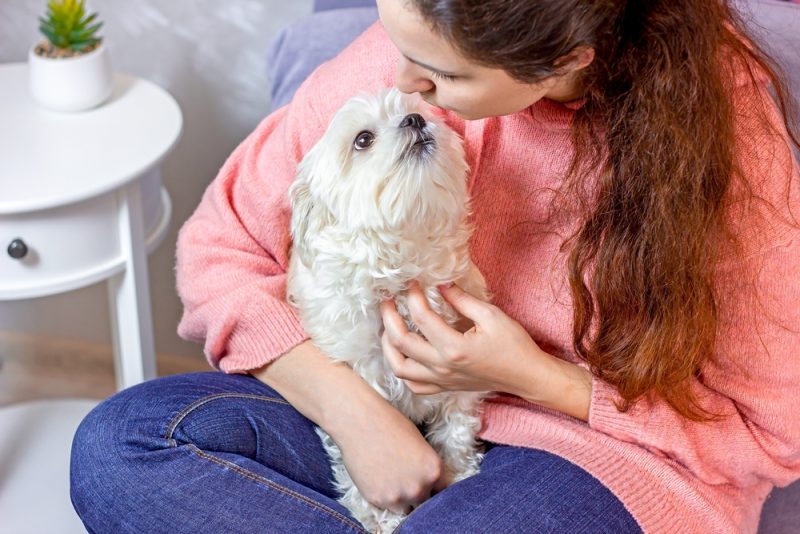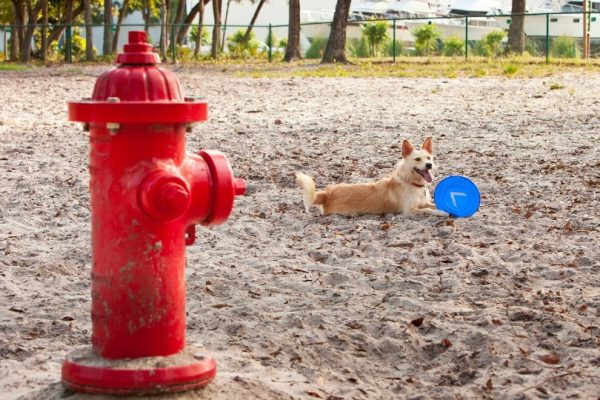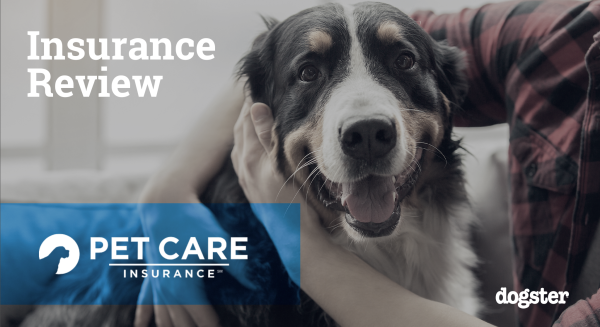In this article
Separation anxiety is one of the most common behavioral issues that plague pet owners and, unfortunately, a frequent reason dogs are surrendered to animal shelters. Managing this condition can be frustrating and time-consuming, leading dog parents to look for any quick solution. One possible option is to get a second dog to keep your anxious dog company, but will it help with separation anxiety?
Despite what is often thought, the presence of a second dog rarely helps calm a pup dealing with separation anxiety. In fact, the unfortunate owner may end up with two anxious pets instead. Keep reading to learn facts about adding a second dog to your household, as well as tips for dealing with separation anxiety in general.

Two Dogs Aren’t Always Better Than One
At first glance, it’s easy to understand why getting a second dog seems like the right solution to dealing with separation anxiety. Dogs with separation anxiety typically display destructive or self-harming behaviors when left home alone. Getting them a friend to keep them company should solve that issue, right?
While there are many reasons why dogs may find it difficult to cope when left alone, most dogs with separation anxiety are overly attached to their human owners, so providing them with another canine friend won’t necessarily soothe them. In a few cases, the anxious dog may indeed develop an attachment to the new pet, and you may see the problem behaviors decrease. But there’s no guarantee that will happen.
Living with another dog doesn’t automatically decrease anxious behaviors like vocalizing and agitation, especially if they’re already established. If the two dogs aren’t well-matched or their personalities clash, anxious behaviors may even increase. In fact one study looking at video footage of dogs when left alone, showed that male dogs in multi-dog households were more likely to bark and vocalize than dogs on their own.
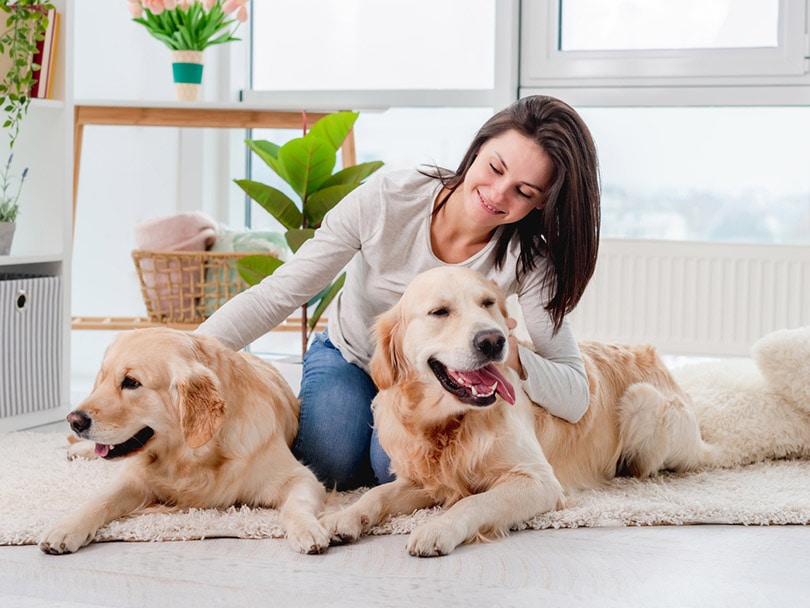

What Causes Separation Anxiety?
Given the prevalence of separation anxiety among companion dogs and its contribution to the unwanted pet population, researchers have devoted significant time to understanding what causes it and how to manage it.
However, the research we currently have is not conclusive. Some studies show that male dogs are more likely than females to develop separation anxiety. Others point to factors such as early separation from littermates, lack of socialization, older dog adoption, and living in apartments as contributing to separation anxiety.
Other possible factors, such as being adopted versus purchased from a breeder and living with adults versus families with kids, have not been conclusively proven. Some breeds are more likely to develop separation anxiety because of their natural attachment to their owners.

What Are the Signs of Separation Anxiety?
Anxious and overly attached dogs may not want to be away from their owners, even when they’re home. If your dog follows you around the house, sleeps with you, and scratches at the bathroom door when you want privacy, they may have separation anxiety.
- Excessive vocalizing
- Chewing and other destructive behavior
- Obsessive behaviors like licking or tail-chasing
- Inappropriate urination
- Shaking, drooling, or hiding
These signs can occur every time you leave the house or only during specific departures.

Treating Separation Anxiety
While getting a second dog is typically not an effective way to help with separation anxiety, there are many other options to consider. Before starting a training or treatment regime, consult with your vet to rule out any medical issues that may be contributing to the anxiety.
Socialize Your Dog
Lack of interaction with other people and animals when the dog is 5 to 10 months old is consistently cited as a factor in the development of separation anxiety. If you buy or adopt a puppy, adequate socialization is one of the best ways to help prevent separation anxiety and key to their development. Exposing them to different people, sounds, places and other animals gradually and in a positive way will help them learn about the world they live in. Adult dogs will also benefit from ongoing socialization.
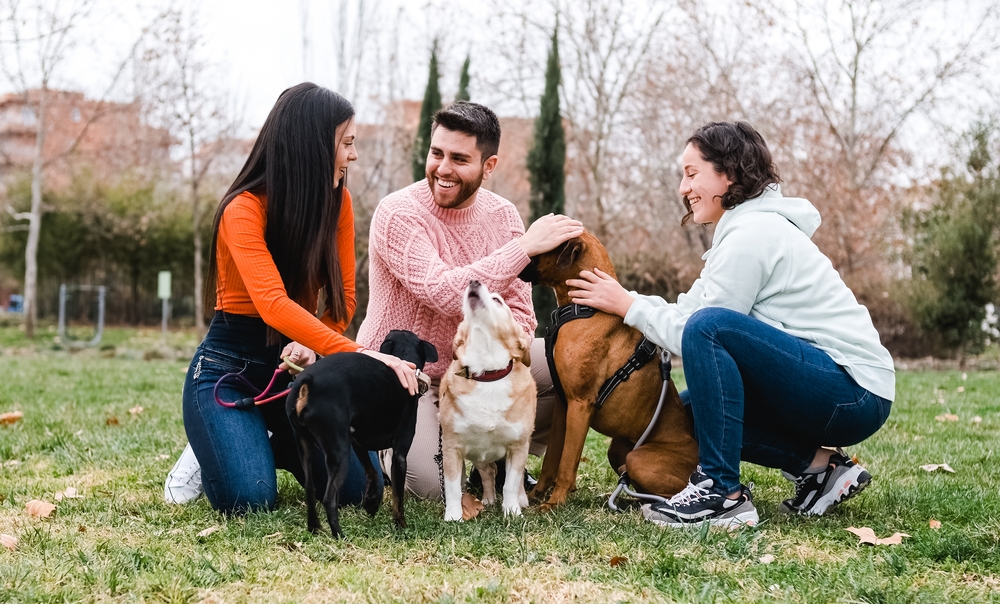
Establish a Consistent Routine
Having a consistent daily routine can decrease your dog’s overall anxiety by letting them know what to expect. Try to walk, feed, and play with your dog at the same times every day. Build in time for your dog to be alone, too, either relaxing in their crate or on a bed without you paying attention to them.
Consistency helps dogs feel more secure overall. They also learn not to expect constant attention from their owners.
Provide Environmental Enrichment
Boredom and lack of exercise can contribute to separation anxiety or destructive behavior. Make sure your dog gets a chance to burn off energy daily. Provide mental stimulation with training sessions, giving your dog a “job,” or providing puzzle toys and similar activities. When your dog is left alone, provide visual and sound enrichment by leaving a TV, music, or white noise playing. Offer safe toys to keep them busy and rotate them frequently.
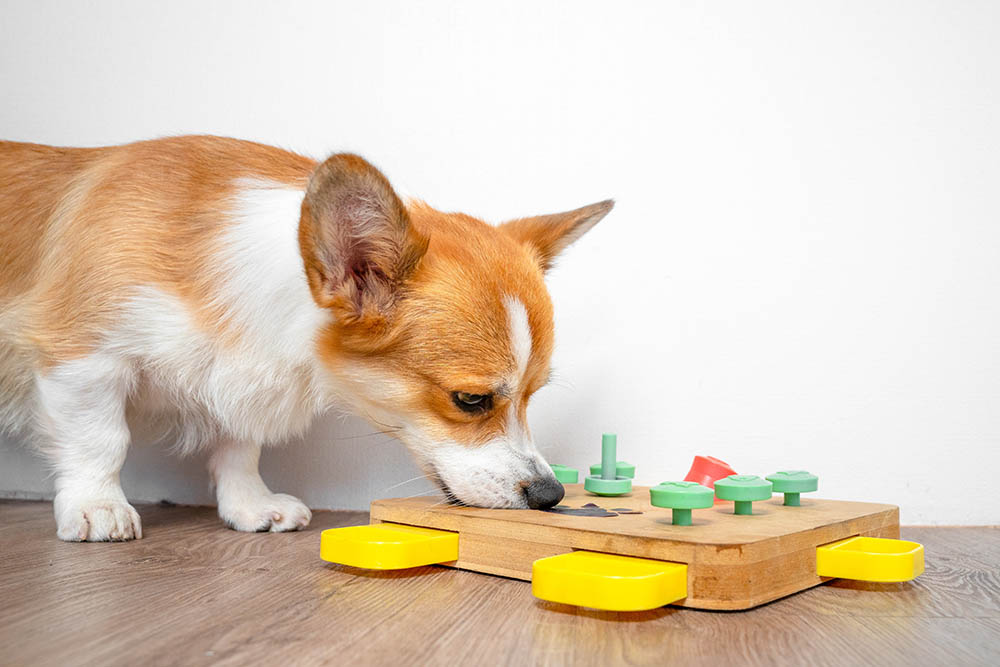
Use a Pheromone Plug-In
You may be familiar with feline pheromone products that are intended to help with inappropriate urination and other issues in cats. Similar calming pheromone products are available for canines that may soothe dogs with separation anxiety.
Research has shown promising results with these products when used as part of a behavior modification strategy.
Consider Medications
There are several behavior-modifying medications available that may help treat dogs with separation anxiety. If you’re interested in the medications, ask your veterinarian if they are appropriate for your dog.
If you need to speak with a vet but can't get to one, head over to PangoVet. It's our online service where you can talk to a vet online and get the advice you need for your dog — all at an affordable price!
Generally, medication alone is not effective in treating separation anxiety but may decrease the most concerning behaviors while a long-term training plan is developed.
Desensitize Your Dog
Long-term, treating separation anxiety generally involves behavior modification, including general obedience training, desensitizing the dog to the owner leaving, and teaching them to remain calm while the owner is gone. This process can be complicated and requires a lot of patience and consistency. It’s advisable to consult with a canine behaviorist or professional dog trainer for help forming and implementing a behavioral modification plan specific for your dog.
Common components of this process include teaching your dog not to react to cues that you’re leaving, such as picking up your keys or opening the door. Owners also get their dogs used to them leaving by gradually increasing the amount of time they’re left alone.
Other strategies include feeding your dog or offering a high-value treat as you leave to build a positive association.

Conclusion
Adding a second dog to your family is a big commitment and should never be taken lightly. If you adopt another pup, don’t assume it will help your current dog’s separation anxiety. In fact, it may be wiser to treat the separation anxiety before introducing a new dog. Anxious dogs will probably match better with a calmer, even-tempered companion. Take your time when searching for a new dog, and make sure the two animals are a good match before committing.
Featured Image Credit: Benevolente82, Shutterstock





